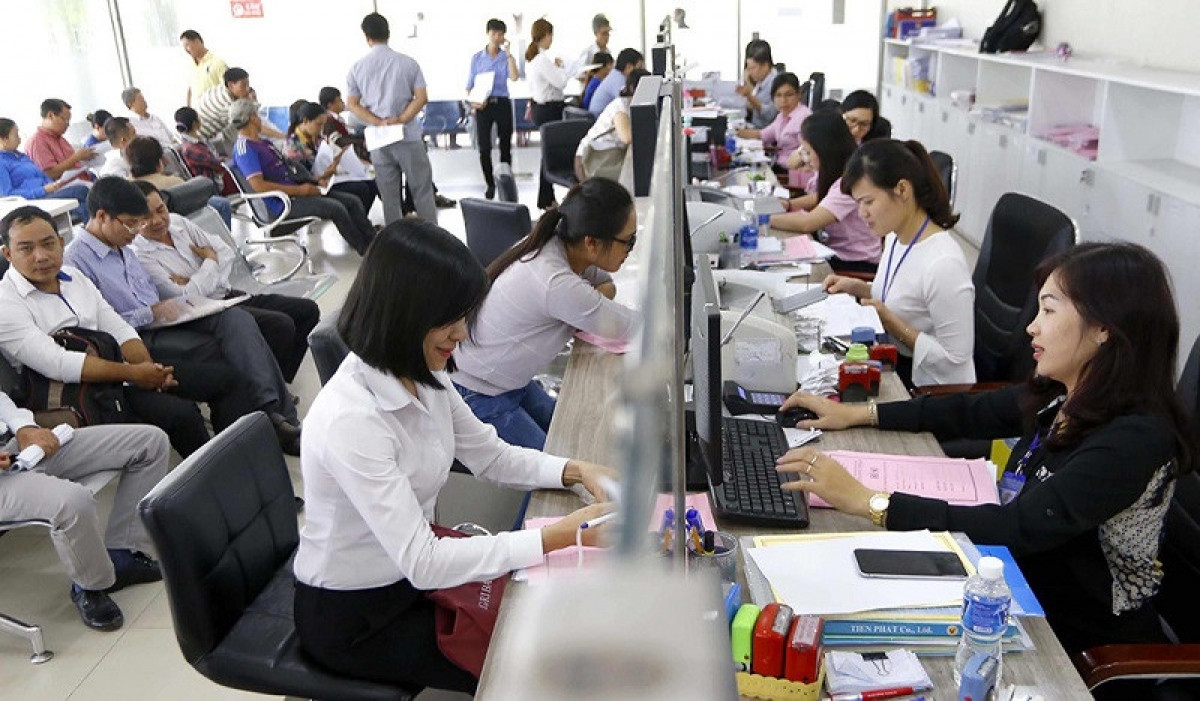Code of Ethics for Public Service: Officials and civil servants are not allowed to swear, use slang, shout, or threaten people.
In communicating with the people, cadres, civil servants and public employees must not swear, use slang, shout, or threaten; must not have behaviors or words that bully, harass, cause tension, anger, or suggest for personal gain.
 |
The development of a Decree promulgating the Code of Public Ethics is extremely necessary. Photo: VGP |
The Ministry of Home Affairs has just released for public comment a draft Decree promulgating the Code of Public Ethics.
Accordingly, the Ministry of Home Affairs said that, in addition to the political and legal bases and directive documents of the Government and the Prime Minister, recently, the Ministry has coordinated with ministries and localities to assess the current status of implementation of contents on public ethics of officials and civil servants in State administrative agencies.
This shows that there are still certain limitations such as a number of cadres, civil servants and public employees still showing weaknesses in communication and behavior with people, organizations and colleagues; there are still disciplinary violations that affect the reputation of the Ministry, localities and the image of cadres, civil servants and public employees...
There are many reasons for this situation. Inspection and supervision work has been strengthened, but there is still a state of favoritism and formality, and violations are not resolutely handled. They are mainly handled on a thematic basis and in peak periods. The handling of violations of public ethics and administrative discipline is not deterrent and not really serious...
Therefore, the Ministry of Home Affairs believes that it is necessary to research, develop and promulgate a Decree promulgating the Code of Public Ethics as a basis for ministries and localities to seriously and consistently implement it nationwide.
Do not let relatives demand or receive money or property related to work.
The purpose of this code of ethics is to ensure integrity, civilization, professionalism, and conformity with the obligations and responsibilities of cadres, civil servants, and public employees; and to ensure the publicity of the code of ethics of cadres, civil servants, and public employees for people to monitor.
This is also the basis for cadres, civil servants and public employees to cultivate and train themselves; raise their sense of responsibility in preventing and combating corruption, waste and other negative manifestations.
This Code of Conduct is also the basis for monitoring and evaluating the ethics of cadres, civil servants and public employees and is one of the bases for competent agencies, units and individuals to consider and decide on evaluation, classification, reward and discipline according to the provisions of law.
In addition to the general code of ethics, the draft decree also devotes a chapter to clearly defining the ethical standards of cadres, civil servants and public employees.
For example, regulations on integrity and honesty require that cadres, civil servants and public employees must not take advantage of their positions and titles to seek personal benefits; and that family members, cadres, civil servants and public employees under their management authority must not demand or receive money, property or other benefits related to the work and tasks that cadres, civil servants and public employees have the authority to handle. In addition, cadres, civil servants and public employees must publicly disclose their personal income according to regulations.
Regulations on decorum and prudence require officials, civil servants and public employees to behave seriously, properly, politely, and not to have offensive words, gestures, actions, or clothing.
In addition, the decree also stipulates dedication and timeliness; capacity and diligence...
No playing games during working hours
The Decree devotes a chapter to regulating communication and behavioral standards for cadres, civil servants, and public employees. This includes regulations on communication and behavior of cadres, civil servants, and public employees with organizations and citizens; with colleagues; with superiors; with subordinates; with foreign organizations and individuals; with news agencies and the press; behavior at the place of residence; in public places; and by telephone.
Specifically, when communicating with people, cadres, civil servants and public employees must not swear, use slang, shout or threaten; must not have behaviors or words that bully, harass, cause tension, anger or suggest for personal gain.
With colleagues, do not be cliquey, local, have words or actions that cause internal disunity, slander, speak untruths, lower reputation, or take personal revenge in the agency or unit.
With superiors, cadres, civil servants and public employees must not be indifferent, avoid or conceal wrongdoings of superiors; proactively propose, recommend and contribute opinions to superiors on management and operation measures.
With subordinates, you must respect, help, share experiences, listen to their thoughts, wishes and legitimate suggestions; do not be bureaucratic, arrogant or look down on subordinates.
Cadres, civil servants and public employees must set an example in their daily activities, practice a civilized lifestyle and a cultured family; build a healthy, harmonious, progressive and happy lifestyle, and not commit acts of domestic violence; not organize weddings, engagements, funerals, longevity celebrations, birthdays, housewarmings and other lavish, wasteful or self-serving events.
At the same time, do not illegally interfere in the activities of agencies, organizations, and citizens at the place of residence; do not participate in, incite, incite, or cover up acts that violate the law or ethics at the place of residence.
In addition, the draft decree also stipulates discipline and administrative discipline in the performance of duties and responsibilities of cadres, civil servants and public employees; use of working hours; regulations on meetings and conferences, and handling of violations of public ethics.
It clearly stipulates not to play games or use personal entertainment devices during working hours; not to drink alcohol, beer, or alcoholic beverages before and during working hours, during lunch breaks on working days; not to gather to eat or drink in large groups during working hours; not to advertise, sell, or market products at the workplace.
The Draft Decree consists of 5 chapters and 25 articles./.
